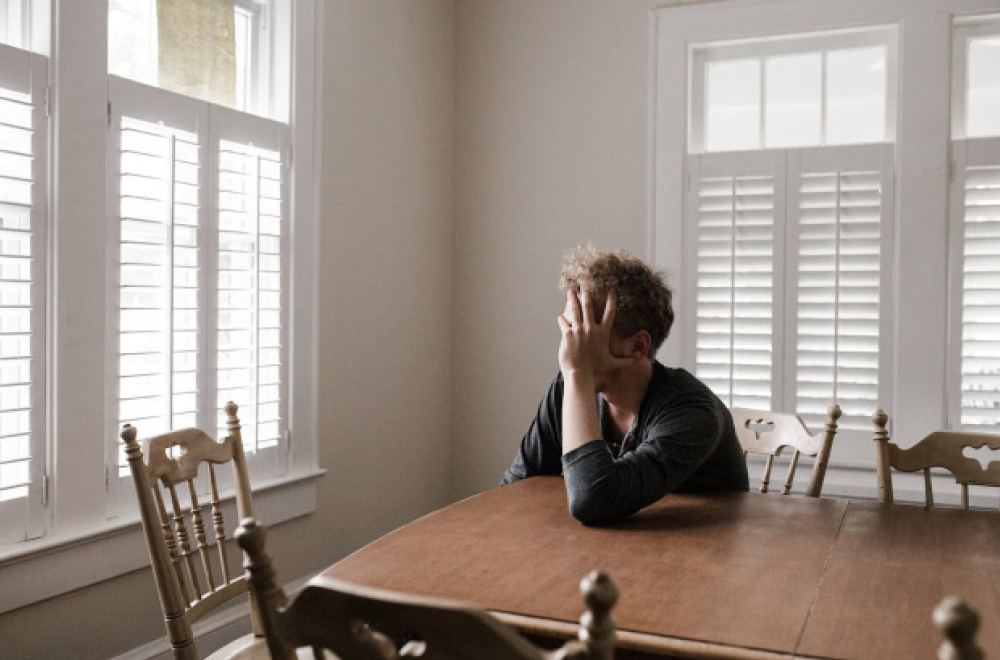Many of us feel lonely from time to time for many different reasons. The risk may be higher for those with health conditions like epilepsy, who may sometimes feel isolated, leading to feelings of loneliness.
Everyone can feel lonely from time to time, and this is part of being human. But when people feel lonely most, or all of the time, or for long periods, it can be harmful to their health.
We know that loneliness can be a bigger problem than simply an emotional experience, especially if it goes on for a long time.
Some people find that epilepsy doesn’t affect their life much, especially if their seizures are controlled with treatment that suits them. For other people, epilepsy may affect different areas of life, such as work or home life, lifestyle, leisure, getting out and about, or social life, and they may worry about how others will react if they have a seizure.
Not having contact with others is sometimes known as social isolation and this can lead to loneliness for some, and feeling lonely can also lead to social isolation. Although isolation and loneliness are different, they can be linked.
According to research, lots of people of all ages and backgrounds feel lonely. Millions of people in the UK say they are often or always lonely. You are not alone.
If you’re feeling lonely
Think about what works for you but here are some ideas, which you may find helpful:
- Taking time to think about what is causing you to feel lonely may help find what could help you to feel differently in the future.
- Your local library, or GP’s surgery, may have information or leaflets about local events: exercise classes, book clubs, or coffee mornings, to help you connect with other people and your community.
- Don’t be afraid to ask for help. Try talking to someone who you feel comfortable with, such as a family member, a friend, your carer, or GP.
- Accept help when offered. It might be a friend or neighbour suggesting you visit for a coffee.
- There may be support and free services which may help. See the list below.
- If you can’t leave the house, try joining an online community who share similar interests to you.
- Volunteering can be a great way to meet new people and make new connections. You could help at a local charity shop, or use your skills to support others.
- Trying out a new hobby could help you to meet new people in your local area.
Organisations that can offer support
The British Red Cross
Your local Red Cross can help you to explore what may be available and help you start doing the things you want. This may include meeting new friends, rediscovering interests, or finding new ones, or building your confidence. You can see what support is available in your area. You can also volunteer to help others.
Faith groups/community halls
See what is available in your local area, from groups for young parents, to reading groups, and gardening clubs.
Libraries
Your local library will have information about what is on in your local area, and many hold events, such as talks and activities, where you can meet other people.
Making music
See what is happening near you.
Meet Up
Join a local group with others and try out new things.
Mind
Offers tips to manage loneliness and a list of organisations that can help. Call 0300 123 3393.
Phab
Charity running clubs across England and Wales, supporting adults and children with disabilities. Call 0208 667 9443.
Reading Friends
Reading Friends tackles loneliness by bringing people together to read, chat, and share stories.
Ramblers wellbeing walks
Find a free group walk in your local area.
Samaritans
A charity dedicated to reducing feelings of isolation. You can contact them day or night, if you are struggling to cope, need support, or if you need someone to listen to you without judgement or pressure. You can also visit your local branch to speak to a volunteer. Calls are free 116 123.
Volunteering
Gov.uk
The government website has information on volunteering.
Royal Voluntary Service
You can volunteer for projects in your local community, and there are also local services available such as lunch clubs and social activities.
Help for older people
Age UK
Age UK offers befriending services, local day centres and also a free advice line. Call 0800 678 1602.
Independent Age
Independent Age offers advice and information for those over 65. Call 0800 319 6789.
Reengage (formerly Contact the Elderly)
Re-engage provides vital, life-enhancing social connections for older people at a time in their lives when their social circles may be diminishing. Call 0800 716 543.
The Silver Line
The Silver Line Helpline is run by Age UK. It is a free, confidential telephone service for older people, providing friendship, conversation, and support 24 hours a day, 7 days a week. Call 0800 470 8090.
Epilepsy Society is grateful to Dr F J Rugg-Gunn, Consultant Neurologist & Honorary Associate Professor, Clinical Lead, Chalfont Centre for Epilepsy, who reviewed this information.
Information updated: February 2026. Review date: February 2028.
Want to know more?
For a printed copy contact our Helpline.
Anxiety
Everyone feels anxious at times. When you are frightened or feel threatened, your heart beats faster, your muscles tense and your body prepares you to ‘fight’ the threat, or to run away from it – ‘flight’.
Depression
We all feel low and depressed sometimes, without it being a medical problem. Depression becomes a problem when the unhappy feelings don’t go away and it affects our daily life: eating, sleeping or being able to get out of bed.
Links between epilepsy and mood
For some people, their epilepsy and mood problems are not connected, they just happen to have both conditions. However, potential links are to do with how epilepsy affects your life as well as with your brain, your genes and your family history.




